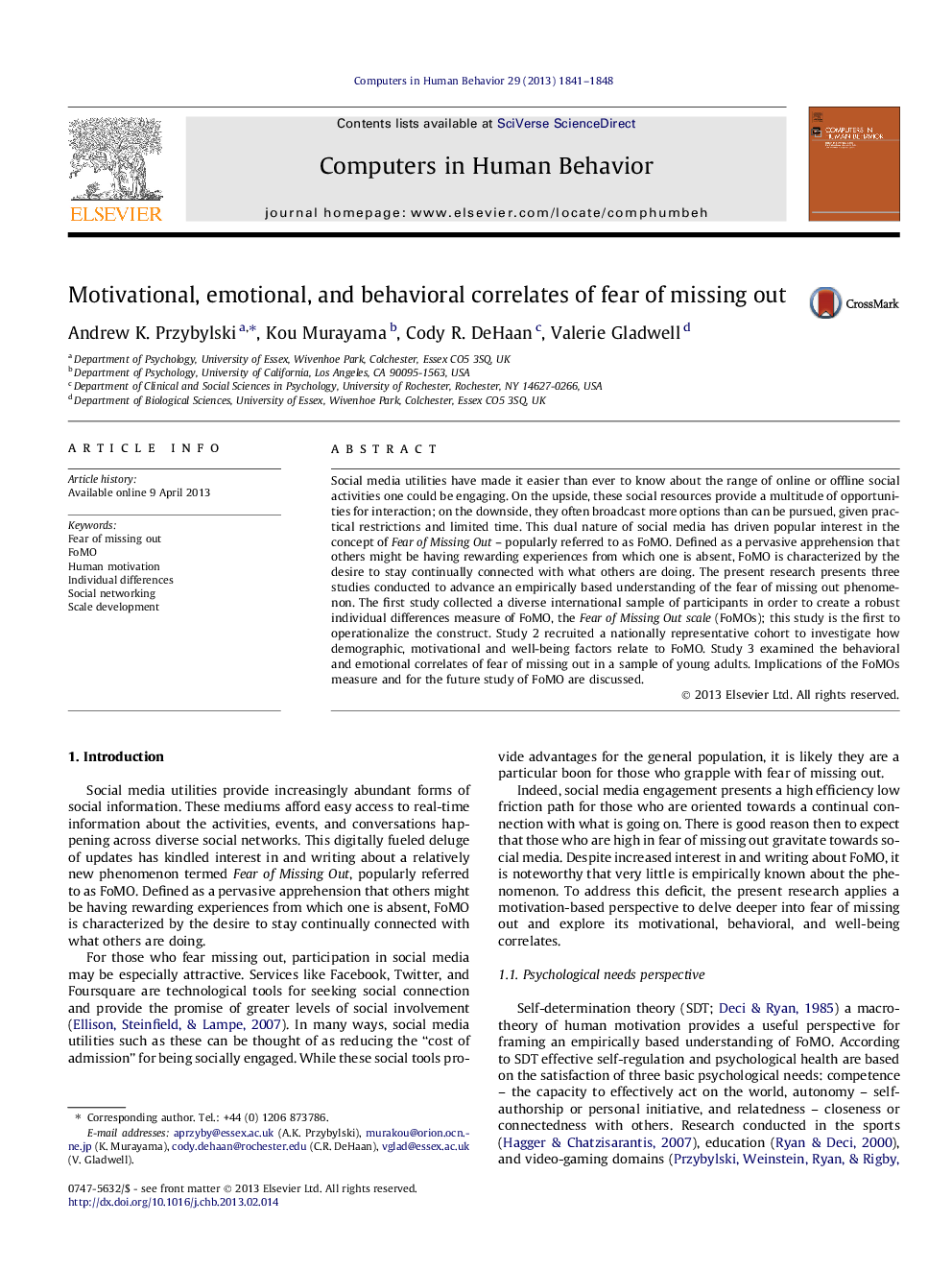| Article ID | Journal | Published Year | Pages | File Type |
|---|---|---|---|---|
| 351089 | Computers in Human Behavior | 2013 | 8 Pages |
•We create and evaluate a self-report measure of Fear of Missing Out (or FoMO).•FoMO was associated with lower need satisfaction, mood and life satisfaction.•FoMO was robustly linked to higher levels of social media engagement.•FoMO mediated links between individual differences and social media engagement.•FoMO was associated with distracted driving and use of social media during lectures.
Social media utilities have made it easier than ever to know about the range of online or offline social activities one could be engaging. On the upside, these social resources provide a multitude of opportunities for interaction; on the downside, they often broadcast more options than can be pursued, given practical restrictions and limited time. This dual nature of social media has driven popular interest in the concept of Fear of Missing Out – popularly referred to as FoMO. Defined as a pervasive apprehension that others might be having rewarding experiences from which one is absent, FoMO is characterized by the desire to stay continually connected with what others are doing. The present research presents three studies conducted to advance an empirically based understanding of the fear of missing out phenomenon. The first study collected a diverse international sample of participants in order to create a robust individual differences measure of FoMO, the Fear of Missing Out scale (FoMOs); this study is the first to operationalize the construct. Study 2 recruited a nationally representative cohort to investigate how demographic, motivational and well-being factors relate to FoMO. Study 3 examined the behavioral and emotional correlates of fear of missing out in a sample of young adults. Implications of the FoMOs measure and for the future study of FoMO are discussed.
